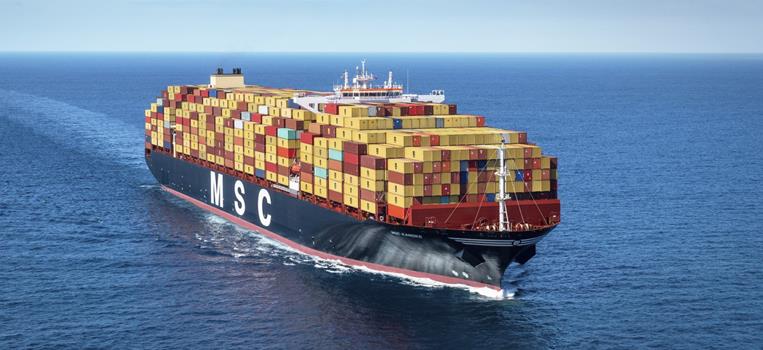Initiative to realize autonomous sailing ready to start demonstration voyages
Jun 15, 2020Concluding contract in R&D grant program related to unmanned vessels with the Nippon Foundation
Mitsui O.S.K. Lines, Ltd. (MOL) announced that with the consortium members, MOL, two of its group companies, and other consortium members have jointly applied to the Nippon Foundation to fund demonstration voyages to test underlying technologies for autonomous sailing within fiscal year 2020.
In cooperation with Mitsui E&S Shipbuilding and Furuno Electric, the MOL Group has been developing technologies for autonomous sailing, and plan to conduct demonstration voyages of their autonomous sailing operation system, from unberthing to berthing. With the support from Nippon Foundation, the demonstration tests will start in 2020.
The demonstration voyages will be conducted with an MOL Ferry-owned/operated large-scale coastal ferry and a coastal containership owned by Imoto Corporation and operated by Imoto Lines, Ltd., using surrounding cognitive technology based on Furuno Electric-developed and owned sensors and Mitsui E&S-developed/owned ship handling for avoidance and auto berthing/unberthing technologies, after MOL Marine conducts autonomous functions using a simulator. In addition, mooring support technology using a drone, developed by Sekido, will be introduced in the demonstration voyage of the coastal containership.
MOL will oversee the entire program and conduct risk assessments, drawing upon its accumulated expertise in ship operations management.
MOL is working to realize autonomous vessels to achieve two aims—further enhancement of safe operation by using new underlying technologies, and reduction of crewmembers’ workload.
Coastal shipping, the target of the program, is a key element of Japan’s logistics system, transporting about 40% of the nation’s domestic cargo and about 80% of basic industrial commodities on a ton-kilometer basis. However, the costal shipping sector is heavily dependent on an aging workforce.
MOL will develop versatile technologies and move ahead with demonstration voyages using two vessels of different types — a 749-ton containership and a large (10,000-ton plus) car ferry. These are two of the major types of vessels involved in coastal shipping, and operate in a severe work environment. The company believes that autonomous sailing can address safety issues and reduce human errors, which contribute to about 70% of marine accidents.
MOL has moved ahead with advanced support of safe operation and reduction of its environmental impact, as set out in the “ISHIN NEXT - MOL SMART SHIP PROJECT -,” which began in November 2016, and aims to become customers’ first choice as a logistics partner by applying ICT technology to improve service quality and efficiency.
Similar Stories
AGLPA Issue Update - Nov 2024
Today the Maritime Administration (MARAD) awarded nearly $580 million to 31 recipient ports in 15 states and territories. These grants are from the agency's Port Infrastructure Development Program (PIDP). Five…
View Article
Viking Line named Finnish security organization of the Year
View Article
Ocean Network Express and Seaspan Corporation jointly announce the establishment of ONESEA Solutions
View Article
MSC Customer Advisory
View Article
ZIM launches its USA Employer Brand Campaign to attract top talent
View Article
Hapag-Lloyd achieves good result in first three quarters of 2024
View ArticleGet the most up-to-date trending news!
SubscribeIndustry updates and weekly newsletter direct to your inbox!





